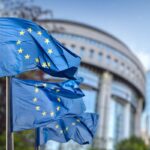Speech by Mr Erkki Liikanen
Member of the European Commission, responsible for Enterprise and the Information Society
"Corporate Social Responsibility: the way forward"
EU Multi-Stakeholder Forum on CSR
Brussels, 29 June 2004
Ladies and Gentlemen,
Introductory remarks
It gives me great pleasure to be here today.
Todays meeting comes just in time for me to be able to conclude the work that we started together almost 2 years ago. This process has been an interesting journey for everyone concerned, and the Forum has done an excellent job.
We have done our best to facilitate this complex and innovative process and I am glad that we are all here today to discuss the concrete results of what we set out to do in October 2002.
Forum process
This process has been a successful experiment, which showed that stakeholder dialogue can lead to cooperation and in good faith between parties with very different views. It can even lead to a sense of team spirit among those most closely involved in the process.
What has been achieved through this Multi-stakeholder Forum cannot be measured only in terms of what is on paper.
It also has to be measured in terms of intangibles: the trust and good will built up between participating organisations and the dynamics created within each organisation.
From what I have heard, the Forum process has driven internal change in some of the organisations involved and leveraged learning and understanding about CSR. This is an important part of what corporate social responsibility is all about.
Acknowledgement
I am, of course, glad that the process also delivered a concrete, tangible deliverable in the form of a Forum report which represents a consensus view among all the different stakeholder groups. This is no small achievement.
I would like to acknowledge the effort that has gone into this work by all the Forum participants. Drafting the final report was only the tip of the iceberg. Work involved the preparation of 12 Round Table meetings and mobilising your membership networks to identify and select more than 50 good practice cases which were presented during Round Table discussions.
It also involved coordinating the views of your members on the different issues discussed on such diverse topics as knowledge and research, small-and-medium-sized enterprises, CSR in developing countries and transparency of CSR tools and practices.
I would also like to give special thanks to the expert rapporteurs who were not only instrumental in drafting the various reports, but also in facilitating the discussions. A wealth of material and knowledge has been assembled in these Round Table reports which are part of the final package.
Assessment Forum report
We welcome the progress the Forum has made in agreeing on a shared and enriched understanding of what CSR means. This baseline understanding builds on the Commission definition and reaffirms that CSR is the voluntary integration of environmental and social considerations into core business operations over and above legal obligations and is based on dialogue with stakeholders.
I think it is also healthy that the report points to the boundaries of the CSR concept and to the limits of what it can achieve. CSR is only one instrument among others to achieve sustainable development outcomes and we should be careful not to have unrealistic expectations of the role business can and should play in resolving ethical and societal problems.
In order to be effective, it is therefore important that CSR is embedded in overarching strategies and policies to promote economic, social and environmental progress and that actions are carried out in partnership between different stakeholder groups, including public authorities.
The report and its recommendations confirm our impression that more progress could be achieved with relation to the first Forum objective of improving knowledge about CSR through the exchange of experience and good practice. This led to the formulation of six sets of recommendations on how to raise awareness and build capacities and competencies in order to mainstream CSR.
We very much welcome these recommendations, most of which are addressed to enterprises themselves and their stakeholders. There is, however, also a role for public authorities and the European Commission in these areas.
We will try to support your efforts since we have an interest in encouraging responsible business behaviour, not just among a few leading companies, but among the mainstream of European enterprises including SMEs, as a way of contributing to the Lisbon goals.
In my view, our approach should be very much focused on what is now often called corporate social opportunity. This is a positive, proactive approach, emphasising win-win opportunities for business and society and aiming at performance improvements, product and process innovations and opening up new market opportunities.
Of course, the Forum also set itself a second objective, namely to explore the appropriateness of establishing common guiding principles for CSR practices and instruments.
It is hardly surprising, that progress on this more controversial objective proved to be difficult. We knew that there were divergent views among the different stakeholder groups since the process started and some of these differences have remained.
Some common ground could, however, be found and the Forum report states that a good balance between comparability, consistency and flexibility can be achieved through market-led, voluntary bottom-up and multi-stakeholder approaches and other drivers.
I am also pleased that the Forum was able to formulate a set of recommendations on the issue of transparency, which is key for enhancing trust and credibility in CSR.
Next steps
The challenge for all the parties involved is how to put into practice these recommendations which, while being soft instruments, represent a high level of ambition and a best practice approach in the field of CSR.
Everyone will have to take their responsibilities: enterprises, business organisations, trade unions, NGOs and consumer organisations, investors, research and higher education institutions and, last but not least, public authorities including the EU.
We acknowledge that demands for more transparency and accountability should not be addressed to enterprises alone, but are a legitimate concern also regarding the operation of public authorities and other organisations.
For its part, the European Commission committed itself in the 2002 Communication to publish a report on its social and environmental performance this year. Your feedback on our first sustainability report would, of course, be most appreciated in a spirit of mutual learning and continuous improvement.
We take note that you have invited the Commission, together with stakeholders, to convene a first joint review in two years time of progress made on the Forums recommendations, and of the trends, developments and innovations in CSR.
It is important to keep the momentum going which has been generated by the Forum process and further thought will have to be given to the concrete modalities of achieving this.
The Commission is open to contributing to the implementation process if this is considered useful by stakeholders, and to participating in exploratory work on any of the areas for further consideration identified in the Round Table reports, either because time was too short or because consensus was not yet possible at this stage.
As you know, the Commission will adopt a new Communication on CSR by the end of this year to assess progress on the EUs CSR strategy, of which the Multi-Stakeholder Forum is a key element. In this context, we will examine how the Commission can best contribute to implementing and taking forward the Forum recommendations.
We will also need to consider how the European approach fits into the wider global picture, where important developments have also taken place this month, notably the Global Compacts Leaders Forum in New York last week.
We would, however, encourage all the stakeholder groups not to wait for our policy paper or the 2006 review meeting before starting to translate words into action.
The Commission will, in fact, launch a major campaign to raise awareness specifically targeted at SMEs this September. Two of the Forum member organisations – Eurochambres and UEAPME – will implement the campaign through their national and regional networks in 29 European countries. You will be invited to the high level launch event which will take place in Brussels at the end of September.
The conference organised by the Dutch Presidency this November will provide another opportunity to keep the ball rolling and to spread the message of CSR also to the new Member States. The conference will certainly provide a valuable platform for exchanging and mainstreaming best practices in CSR and building on the work of the Multi-Stakeholder Forum.
Thank you all and au revoir.



